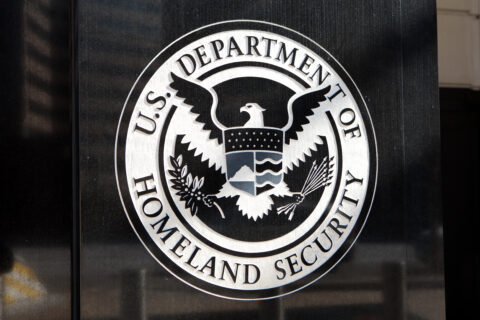Economics

States and Localities Critical to Immigration Policies
Governors and mayors, state legislatures and city councils are playing an increasingly critical role in U.S. immigration policy. As a result of Congress’s inaction, states and localities are feeling pressure to take action on immigration, and many of the policies that directly impact immigrants’ lives—law enforcement, public benefits, driver’s licenses—are being driven by new state and local laws. Some state and local immigration policies have been positive and have helped to integrate immigrants into American communities. Others, however, have had a harmful impact on immigrants as well as on public health and safety. The National Conference of State Legislatures (NCSL), a bipartisan organization that serves the legislators and staffs of the nation's 50 states, recently published two documents that highlight the role that states play in immigration policy. One is a report on recent state activity, and the other is NCSL’s official immigration policy statement. Read More

Quadrennial Homeland Security Review: Is DHS Asking the Right Questions?
If you go to the National Dialogue on the Quadrennial Homeland Security Review (QHSR) website and click through to the Smart and Tough Enforcement of Immigration Laws section, you will find a bit of surprise. Despite a title that panders to the enforcement first crowd, implying that immigration policy is all about being “tough,” there is actually a remarkably thoughtful effort to capture a broader set of immigration policy goals. Take a look at the mission statement: A secure, unified, fair, adaptive, and responsive immigration system that protects the public, enriches our society, and improves our economy. Read More

Newest Reality TV Show: Canada’s Got (Our) Talent!
If we needed any proof that our dysfunctional immigration system inhibits our economic growth, our neighbors to the north have provided us that proof. Canada is actively exploiting, to their economic benefit, our backlogged and broken immigration system. Canada is recruiting the best and brightest American-trained foreign nationals through a streamlined immigration process. After receiving a U.S. education, these talented foreign nationals are now contributing to Canada’s economic future instead of ours. If only we could get Congress to pay attention, if not to our future economic growth, at least to Canada’s and how they are getting there thanks to our efforts to train but not retain foreign talent. Read More

Summer Recess, the Best Time to Bug Your Members of Congress
As the House begins its August recess today (the Senate goes home next week), Members of Congress are returning home to kiss babies and meet with constituents on a host of issues. We are betting that some of those visits will be about this country’s broken immigration system. Nothing moves members of Congress more than face-to-face meetings with constituents letting them know what they care about. So in honor of summer recess, the IPC is reminding you of our top resources that can be used when paying a visit to your local legislator. Read More

For Here or To-Go? “Highly Skilled Take-Out” is Growing in the United States
At a recent conference, Bill Gates shared his ideas about U.S. Immigration policy, noting that there should be more “exceptions for smart people.” While not the most eloquently phrased statement, it does pose an interesting question in the immigration reform debate. Are we turning away skilled workers? Or are they leaving on their own, thanks to a complicated system of paperwork and jumping through hoops and lack of job advancement opportunities? Read More

FAIR Targets Immigrants and Children in Pennsylvania
The Federation for American Immigration Reform (FAIR)—an anti-immigrant hate group based in Washington, DC—claims in a new report that “Pennsylvania’s illegal immigrant population costs the state’s taxpayers about $728 million per year for education, medical care and incarceration.” However, the statistical contortions in which FAIR engages to produce this number render it virtually meaningless. FAIR dramatically exaggerates the fiscal “costs” imposed by unauthorized immigrants by including the schooling of their native-born, U.S.-citizen children in its estimate, and completely discounts the economic role that unauthorized workers play as consumers who help support Pennsylvania businesses. Read More

The High Cost of Inaction on Immigration Reform
This week the National Institute on Money in State Politics released a study on funding spent supporting and opposing immigration-related ballot measures. Immigration Measures: Support on Both Sides of the Fence examined 2008 ballot initiatives in Oregon and Arizona and found that money raised by both sides of the issue totaled more than $17.5 million. Read More

Old Anti-Immigrant Ideas, Even Bad Ones, Die Hard
Without an ounce of originality, tired old anti-immigrant groups are once again joining forces to exploit California’s bad economy and scapegoat the Golden State’s immigrant population. Through a ballot initiative, they seek to cut benefits to U.S. citizen children and throw the 14th amendment of the U.S. constitution, which grants individuals born in America their citizenship, out the window. According to the L.A. Times, the organizers of the amendment are seeking to curb what they call “invasion by birth canal" and are using the bad California economy as their latest opportunity to bash immigrants. Read More

Including Immigrants in Health Care Reform Makes Economic Sense
Soon after the health care debate began in Washington, Congress immediately started running into immigration potholes. For the most part, the health care conversation centers around plans to insure as many Americans as possible. Experts, Members of Congress and the Administration generally agree that it is less costly in the long-run to include as many people as possible. However, it gets trickier when they begin considering that approximately 12% of the U.S. population is foreign-born. While most in Washington have completely written off the possibility of including undocumented immigrants in any kind of coverage plan, Congress continues to be perplexed over legal permanent residents—our citizens-in-waiting. Yet loads of good data present a compelling argument for why it makes more sense to be inclusive: Read More

Bridging the Black Brown “Divide” with Facts
Anti-immigrant groups have repeatedly tried to drive a wedge between African Americans and immigrants by capitalizing on the myth that immigrants take American jobs—particularly jobs that would otherwise go to African Americans. That myth, as anti-immigrant groups present it, is simply not true, says Gerald Jaynes, a professor of Economics and African American Studies at Yale University. In a new Perspectives piece for the Immigration Policy Center, A Conversation about the Economic Effects of Immigration on African Americans, Jaynes dispels the myth that immigrants take “black jobs” and instead suggests we find solutions on how to lift up all low-wage American workers. Read More
Make a contribution
Make a direct impact on the lives of immigrants.
